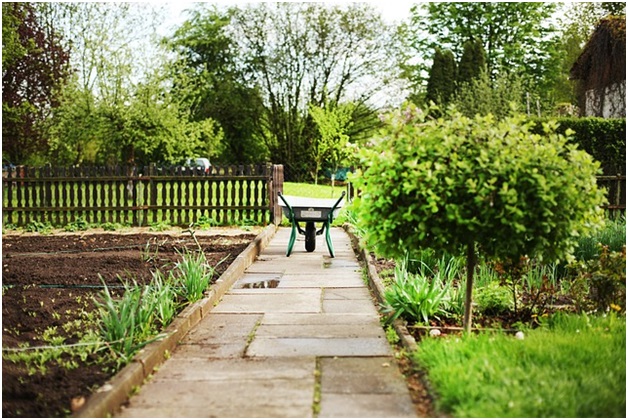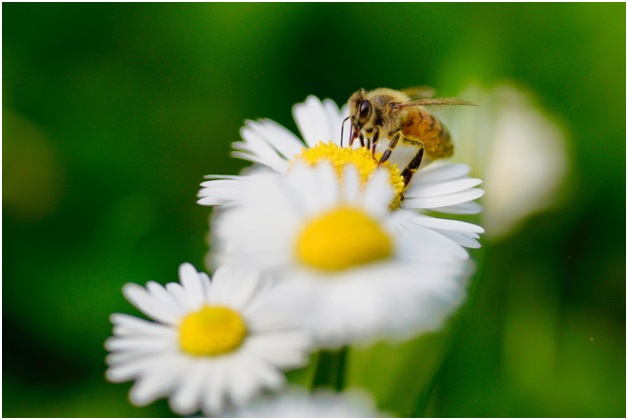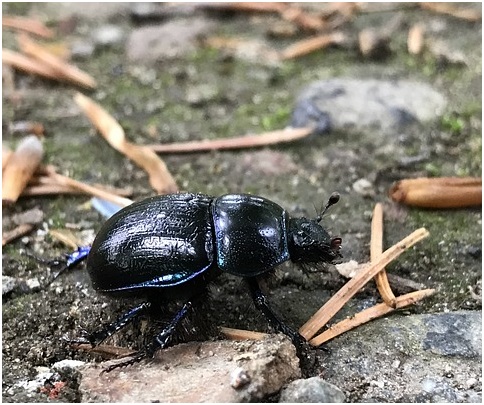
A garden’s health isn’t just measured by how healthy the plants are, but also by which animals inhabit it, especially insects. Having a garden with nothing but plants and flowers may be pretty to look at, but it also indicates that it’s a dead zone for smaller critters. This means that the moment you stop tending to your garden, it’ll just wilt and die, since there wouldn’t be any support from the right kinds of insects to keep it going.
Of course, having the wrong kinds of insects isn’t good either. Some insects are considered pests and would ruin your garden if given the chance. You can use a variety of pesticides to keep these ones at bay, but that also means you’d be killing insects that can be beneficial for you and your garden. So, if you want an all-natural garden free from pesticides, but also free from pests, you’ll need to attract the good insects that prey on these pests.
Here’s a summary of how you can attract insects that are beneficial for your garden, and also a list of which ones you’ll want to keep.
Why Use Insects?
In case you’ll need more convincing why it’s better to rely on beneficial insects for your garden, here’s a list for you:
• No Chemicals
While using chemical pesticides are effective at keeping your garden free of pests, the toxicity can be problematic for you and your family, especially if you have pets. Relying on insects for your pest control means you can grow your plants organically. If you’re growing vegetables in your backyard, you no longer have to worry about the chemicals getting into your food.
• Save Costs
So long as you have the right environment for the good insects, they generally wouldn’t mind sticking around. This means that whatever benefits they have will stick around with them without you needing to pay extra. You get to save money from using pesticides, and you generally let nature do all the work.
• Works Against Pesticide-Resistant Bugs
Studies have shown that pests are starting to grow resistant to certain chemical pesticides. Since the introduction of chemical pesticides in the late 1940’s, more than 500 to 1000 species have developed resistances to these pesticides. Regardless of how resistant these bugs are to pesticides, however, they’re still vulnerable from being eaten by their natural predator.

• They Pollinate Your Plants
One of the biggest benefits insects have to any garden is that they help with pollination. Native species of bees, honey bees, moths and butterflies help your plants and flowers prosper by helping them bear fruit and propagate. This means that your garden will continue to grow naturally so long as good insects live in it.
Beneficial Insects and How to Attract Them
Now that you have an idea of the benefits of using good insects on your garden, it’s time to check which insects are actually good, and how you can attract them to your yard. If you’re looking for something in-depth, this list of beneficial insects and other helpful critters is available for you to look at. These insects basically keep the pests in check without damaging the plants in your garden, as well as helping these plants thrive in other ways.
1. Ladybug
The ladybug is one of the most well-known beetles around and is an effective way to keep the aphid population in check. As a matter of fact, ladybugs are known to consume at least 5000 aphids in their lifetime. Aside from aphids, they’ll also prey on fleas, mites, whiteflies and potato beetles. Ladybugs are generally attracted to gardens with dandelions, common yarrows, dills, and fern leaf yellows.
2. Spiders
Though they’re actually arachnids, and not insects, spiders are a great way to keep flying pests from overwhelming your garden. They’re great at keeping fruit flies, mosquitos and bed bugs in check, but are also good at keeping grasshopper, roach and aphid populations down. Spiders generally like making their homes in tall plants, so having a tree around or a tall shrub is enough to attract them.
3. Praying Mantis
The praying mantis is a great insect that preys on a wider range of pests, including caterpillars, crickets and beetles. They’re also known to prey on larger insects, like moths. Mantises prefer tall grasses and shrubs with heavy cover, though they are also known to make their homes in marigolds, cosmos and dills.

4. Ground Beetles
These beetles specialize more on larger, ground-dwelling pests, like slugs, caterpillars, cutworms and fellow beetles that are considered pests, like the potato beetle. These beetles are nocturnal, so you rarely see them during the day. To attract these beetles, planting evening primrose, clover or Amaranthus should be enough to get them gathering on your garden and keep them there.
5. Braconid Wasps
A more predatory type of insect, wasps are excellent to keep if you have problems with worm-like pests. Pests such as hornworms, caterpillars and aphids will easily be kept in check, and the wasp does so by laying its eggs into them, killing them once the eggs hatch. Planting parsley, yarrow and lemon balm should help attract these wasps to your garden.
6. Pirate Bugs
If you have problems with smaller pests, like spider mites, caterpillars, thrips and aphids, pirate bugs will be very beneficial for you and your garden. They’re also known for hunting down and eating insect eggs, making them really effective. Plants like alfalfa, caraway, spearmint, fennel and goldenrods attract these insects.
7. Green Lacewings
Green lacewings are known to be excellent predators against a variety of bugs, including aphids, whiteflies, leafhoppers, caterpillars and mealybugs. The lacewing larva are the actual ones that do the killing, so make sure that their larvae have a good place to call home. Plants like the angelica, dandelion, coriander and dill make for excellent homes for these insects.
Final Thoughts
While many of us from a young age have been hard-wired to hate insects, they’re not all bad. As a matter of fact, out of the millions of insect species that we know of, less than three percent are actually considered as pests. The majority of the insect species have a job to do in keeping their respective ecosystems in check and making sure that their environment is in perfect balance. There’s no better way at keeping your garden healthy than by letting nature do all the work.

